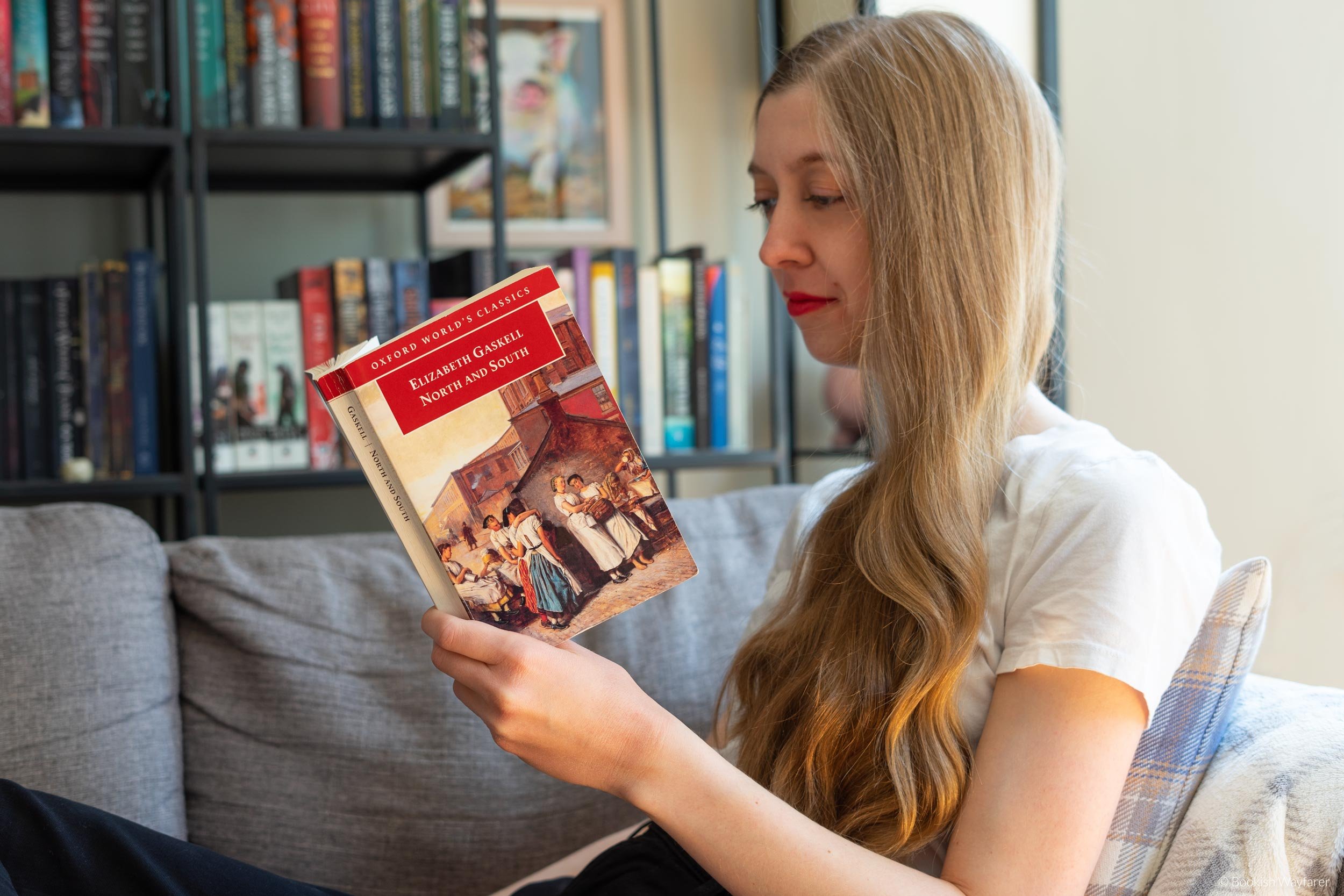Review: Cranford by Elizabeth Gaskell
“Out of the way! We are in the throes of an exceptional emergency! This is no occasion for sport – there is lace at stake!”
Some links in this post are affiliate links, meaning I will earn a commission (at no extra cost to you) if you click through and make a purchase. For more info, please see my disclaimer.
The Basics
Title: Cranford
Author: Elizabeth Gaskell
Published: 2008 (first published 1853)
Publisher: Penguin Books
Pages: 187
Format: Paperback
Genres: Fiction — Classics, Victorian literature, Satire
Book Synopsis
Cranford describes the everyday lives of a group of middle-aged women living in a lower-to-middle-class, country village in Victorian England. With their limited resources, the women attempt to maintain both appearances and the rigid social customs of the day, often with a comical outcome. The friendship among the women, particularly how it endures and evolves over time, is a primary focus of the novel.
My Review & Overall Thoughts
Cranford is not what I expected it to be. I thought it would be a satirical look at classism and social etiquette, and to a degree it is. But it is also so much more. It is a tale of friendship, optimism in the face of hardship, and the tangible rewards of kindness. It speaks to the strength of women at a time when it was all too common for women to be regarded as the inferior, “fairer” sex. Moreover (and perhaps most importantly to a reader), it is an entertaining book, filled with memorable characters, who by the end of the novel, feel as real as either you or me.
One aspect of the book that brings the characters to life is the narration style. Unlike most novels that are narrated by either the main character or an omniscient third person, Cranford is written from the perspective of a woman, whose identity remains unknown until practically the end of the book. The only details about the narrator that we are given upfront are that she is a close friend of the main character, Miss Matty, and that she frequently visits but does not live in Cranford. This sense of vagueness about the narrator allowed me to more easily imagine that I was the narrator, and as a result, I became more immersed in the story. The fact that Cranford, with its gossip and social cliques, is quite reminiscent of the town in which I grew up further aided my sense of immersion.
I also enjoyed the feminist theme of Cranford. Women are at the focus of the novel; the few male characters who exist serve as either comic relief or as a plot device for one of the women’s stories. The women and the friendship among them are at the heart of the story, and over the course of the book, we discover just how deep and supportive that friendship is. The women themselves are quite the cast of characters. From Miss Pole, the gossipmonger who when a string of alleged burglaries take place all but hopes that her house will be the next target (for propriety’s sake, of course – she can’t have her less well-to-do neighbors having their homes robbed while hers remains untouched), to Miss Jenkyns, Miss Matty’s overly prim sister who refuses to eat oranges in front of others lest they should hear her make a sucking sound, the women are all unintentionally amusing and completely unforgettable.
Now, this wouldn’t be a proper review if I failed to mention the novel’s shortcomings. One of the main weaknesses of the book is its first few chapters. Whereas the later chapters have some sense of continuity from one to the next, the first few chapters feel somewhat disjointed. For instance, at the end of chapter two, the narrator jumps ahead to the future to relate a story about one of the characters, and then at the start of chapter three, we learn that that same character has died. No indication as to how much time has passed or how the character passed away is provided. Also, as with the majority of Victorian novelists, Elizabeth Gaskell is descriptive in her writing and uses words that are now antiquated. While I enjoy flowery language, I recognize that it’s not everyone’s cup of tea, so if you enjoy succinct writing, be warned. And be sure to have a dictionary handy regardless of your stance.
Have you read Cranford? If so, what did you think – loved it, hated it, ambivalent? Share your thoughts below in the comments!
-Julia
P.S. If you enjoyed this post, please consider supporting me on Buy Me a Coffee.



